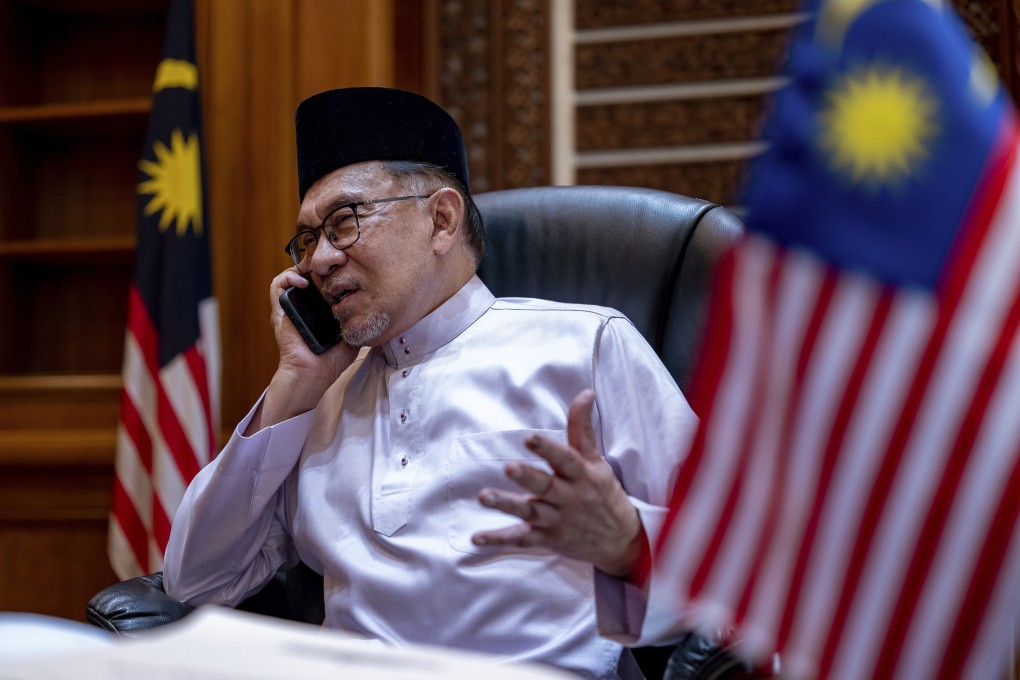Advertisement
Malaysia’s China policy to stay on even keel under Anwar Ibrahim with economy main focus, analysts say
- Anwar Ibrahim, Malaysia’s new prime minister, is sometimes seen as ‘pro-West’ and has raised concerns in the past about China’s Xinjiang policy
- Previous criticism unlikely to trigger ‘a point of conflict’, observers say, with China ties expected to continue ‘predictable trajectory’
Reading Time:3 minutes
Why you can trust SCMP
6

Malaysia’s China policy will continue to be steady as new leader Anwar Ibrahim seeks to preserve economic ties, while being “low-key” on contentious issues, observers said.
Anwar, 75, was sworn in as prime minister of Malaysia on Thursday, after a 25-year quest for the position. His appointment ended days of deadlock and intense negotiations following last Saturday’s general election, which his Pakatan Harapan coalition won but lacked the numbers to form a majority government.
Anwar is known for his good ties with US politicians and is sometimes seen as “pro-West”. US Secretary of State Anthony Blinken congratulated him on Thursday, saying Washington looked forward to deepening cooperation with Malaysia and working together to achieve a “free and open” Indo-Pacific.
Advertisement
Previous administrations in Malaysia have maintained friendly relations with China, the Muslim-majority country’s top trade partner since 2009.
However, there has been speculation about how Anwar might approach ties with Beijing, given that he had expressed concerns over Uygur issues in Xinjiang in the past.
Advertisement
In an interview with Nikkei Asian Review ahead of a trip to Beijing in 2018, Anwar urged China to recognise the rights of the Uygur Muslim community, particularly their right to freedom of religion and movement, and said any form of violence – whether by the state or by society – could not be condoned.
Advertisement
Select Voice
Select Speed
1.00x
